About
HT Lee
Herman T. Lee, Sr.
Correctional Andragogist
These presentations are designed to familiarize the correctional practitioner with an understanding and knowledge of a more effective approach of instructing within the criminal justice system by integrating Counseling and Therapy with Andragogy as opposed to implementing Pedagogy.
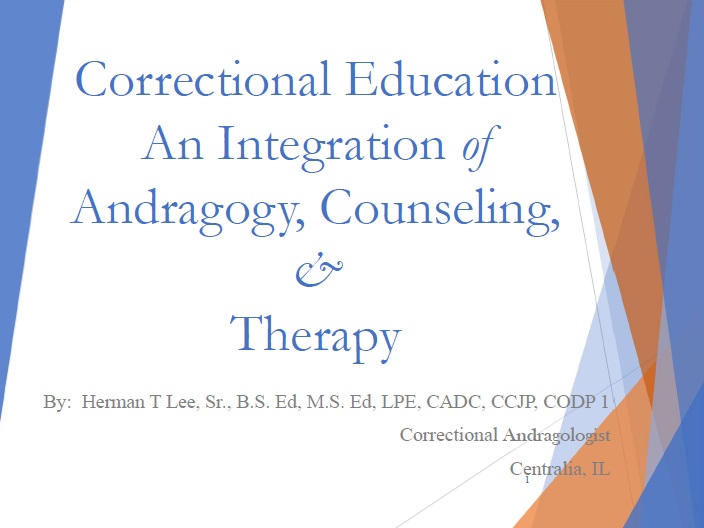
A lasting change in a student’s behavior is to change the way they think. Students in correctional education programs often struggle with Learning, Behavioral and Co-occurring disorders. This presentation is designed to familiarize the correctional practitioner with an understanding and knowledge of a more effective approach of instructing within the criminal justice system by integrating Counseling and Therapy with Andragogy as opposed to implementing Pedagogy.
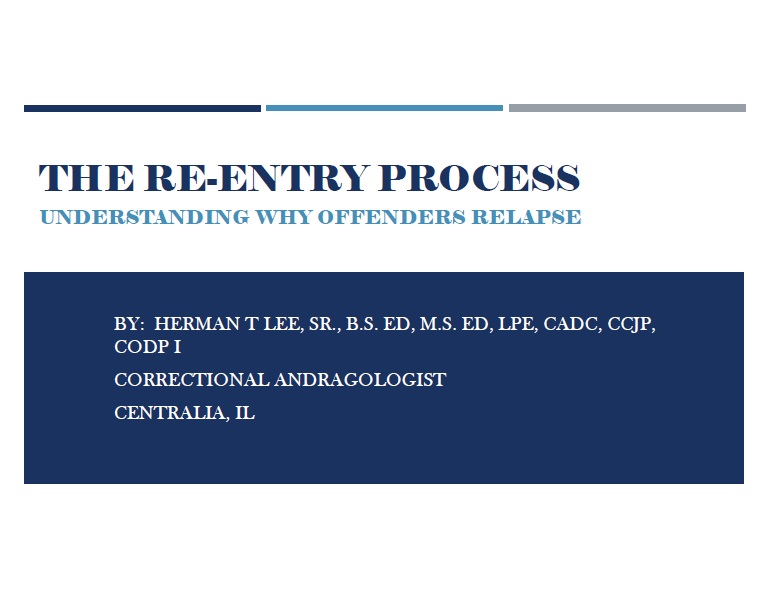
Relapse and recidivism begin long before substance abusers are discharged from a treatment program or offenders are released from prison. There is a need to begin focusing on the behavioral similarities of addiction, relapse and recidivism. Having a basic knowledge of how the addictive mind works is a starting point towards understanding recovery and reentry.
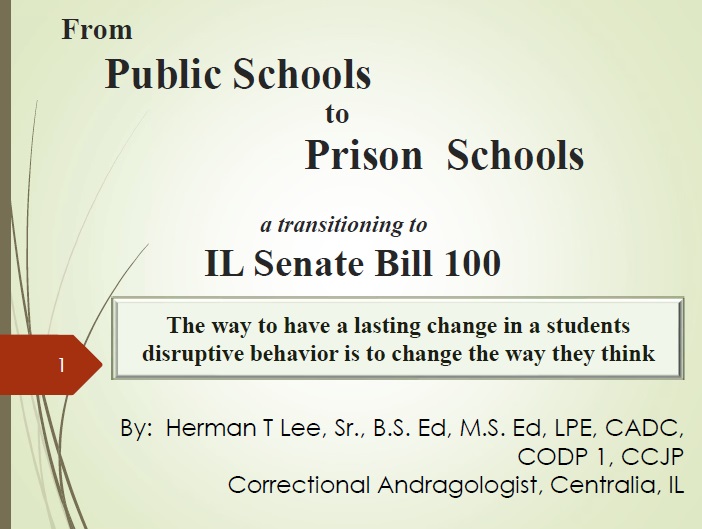
This presentation will provide school administrators, teachers, and correction’s personnel with basic background knowledge of the DSM and how emotional, behavioral and mental health problems can affect our children’s education. Under zero tolerance, suspension and expulsion from public schools, there is a systemic, subtle, implicit, cultural and personal bias towards these students with disabilities. Having an understanding that untreated disorders along with suspension and expulsion are major contributing factors to our increasing gang, drug abuse/ addiction and prison problems. Illinois Senate Bill 100 is attempting to address these problems.
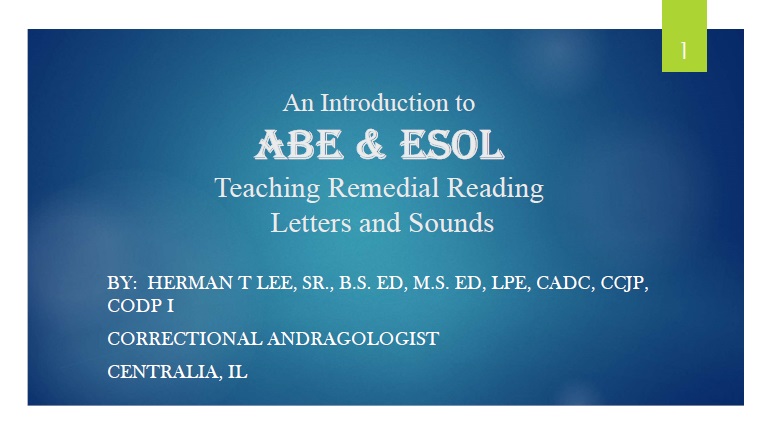
This presentation is designed to help the educator use an effective introductory approach for teaching Adult Basic Education and Language for Speakers of Other Languages by using a structured and alternative method versus phonics. The student will learn how to see, feel, hear and apply the combined integration of letters and sounds as they become words.
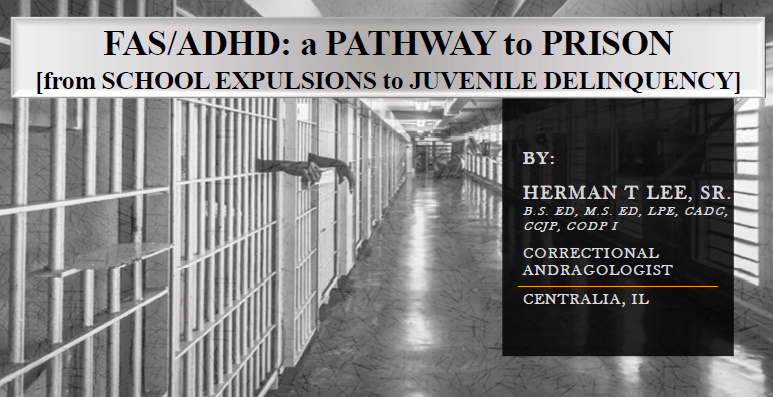
The damaging effects of alcohol, opioids, and other chemicals, such as lead poisoning, on parts of a child’s
brain negatively affects the child’s learning and behavior.
This can be diagnosed as:
-Fetal Alcohol Syndrome
-Attention Deficit Hyperactive Disorder
Under Zero Tolerance and school expulsion, students with FAS/ADHD are treated as juvenile delinquents. AND there is a subtle, implicit, cultural and systemic bias towards students of color with such impairment; therefore FAS/ADHD becomes a PATHWAY to PRISON.
Herman T. Lee, Sr.
Correctional Andragogist